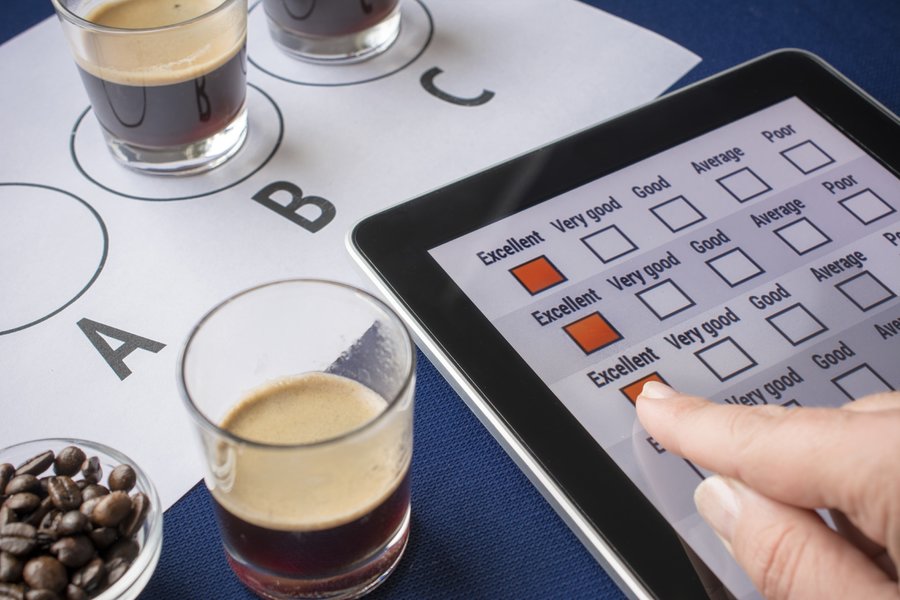ISO 70418 Descriptive Sensory Profiling in Herbal Supplements
The ISO 70418 standard provides a structured approach to descriptive sensory profiling, which is particularly valuable for the quality and safety assessment of herbal supplements. This service aims to ensure that herbal products meet the highest standards of consistency, purity, and consumer satisfaction by quantifying sensory attributes such as taste, aroma, texture, and appearance.
The process begins with selecting a panel of trained sensory analysts who are experienced in evaluating the specific characteristics relevant to the type of herbs being tested. These analysts undergo rigorous training to ensure uniformity in their assessments. The specimens for testing are prepared according to strict protocols that preserve the integrity of the herbal components, ensuring accurate and reliable results.
The use of descriptive analysis allows for a detailed breakdown of sensory attributes, which can then be quantified using statistical methods. This approach not only helps in identifying any inconsistencies or defects but also provides valuable insights into consumer preferences and expectations. The resulting data can inform product development, improve quality control processes, and enhance customer satisfaction.
By adhering to the ISO 70418 standard, laboratories ensure that their testing methods are robust and reproducible, thereby upholding the integrity of the herbal supplement industry. This service is crucial for manufacturers looking to maintain high standards in a market where consumer trust is paramount. The detailed reports generated from this process provide actionable insights that can drive innovation and improvement within the product lifecycle.
The application of this standard extends beyond mere compliance; it serves as a tool for continuous quality improvement, ensuring that each batch of herbal supplements meets the stringent requirements set by regulatory bodies and industry standards. This service is particularly beneficial for companies seeking to differentiate their products in an increasingly competitive market.
| Industry Applications |
|---|
| Evaluating the quality and consistency of herbal supplements. |
| Identifying potential issues early in the product development process. |
| Promoting transparency and trust with consumers by providing reliable sensory data. |
| Supporting regulatory compliance through standardized testing methods. |
The application of ISO 70418 in the context of herbal supplements is not only beneficial for manufacturers but also for suppliers who need to ensure that their raw materials meet the required standards. By leveraging this service, companies can gain a competitive edge by offering products that are consistently reliable and meet both consumer expectations and regulatory requirements.
Why It Matters
The quality of herbal supplements is crucial for both manufacturers and consumers. Consumers expect consistent and high-quality products, while regulatory bodies demand rigorous testing to ensure safety and efficacy. Descriptive sensory profiling helps bridge this gap by providing a comprehensive evaluation of the sensory attributes of these products.
One of the primary reasons why ISO 70418 is essential in herbal supplements is its ability to identify subtle differences that might not be apparent through other analytical methods. This early detection allows for corrective actions to be taken before the product reaches the market, ensuring that only high-quality supplements are available to consumers.
Another significant benefit of this service is its role in enhancing consumer trust and satisfaction. By providing detailed reports on sensory attributes, manufacturers can communicate more effectively with their customers about the quality of their products. This transparency fosters a stronger bond between the company and its audience, which can lead to increased loyalty and repeat business.
Furthermore, adherence to ISO 70418 ensures that companies are in compliance with international standards, which is increasingly important as markets become more globalized. This compliance not only reduces the risk of legal issues but also positions the company favorably in the eyes of regulatory authorities.
Applied Standards
The ISO 70418 standard is widely recognized for its robust framework for descriptive sensory profiling, which aligns with other international standards such as ISO 5694 (for food safety) and ISO 11360-1 (for color measurement in food). These standards provide a comprehensive approach to ensuring that the testing methods used are both accurate and reproducible.
The application of ISO 70418 ensures that all sensory evaluations meet the highest scientific and technical standards. This standardization is particularly important in the context of herbal supplements, where subtle variations can significantly impact product quality and consumer experience.
In addition to these international standards, local regulations such as FDA guidelines for dietary supplements also emphasize the importance of sensory profiling. By incorporating ISO 70418 into their testing protocols, laboratories ensure that they are meeting not only international but also national requirements, thereby enhancing their credibility in the global market.





